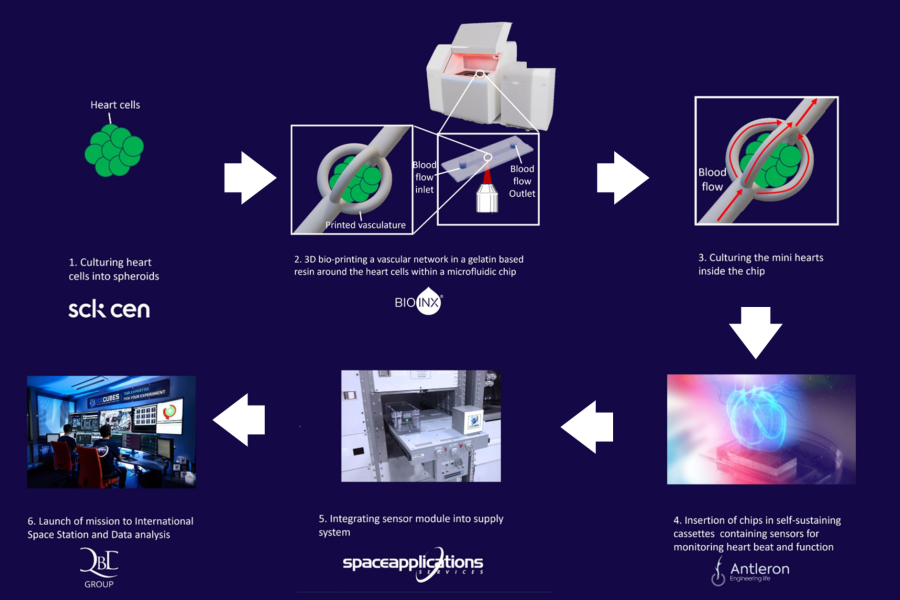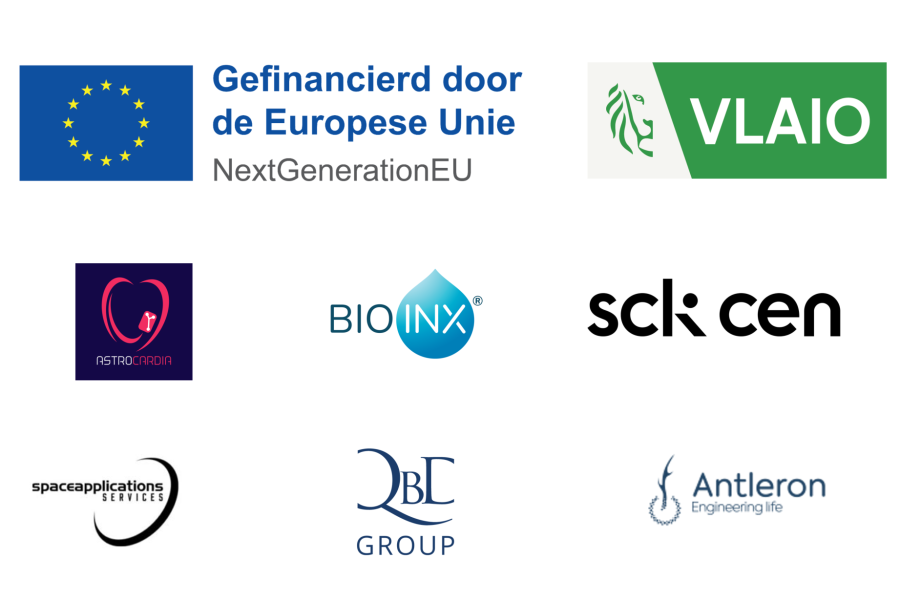Cardiovascular diseases are leading global causes of death, with risks rising as we age. Yet, researchers still lack a full understanding and realistic heart models to reveal the underlying biological processes. As of today, no adequate human-derived model exists for studying cardiac ageing. This project intends to establish human derived models of cardiac ageing for fundamental research, drug discovery and development of therapeutic strategies and a platform for personalized medicine on earth and in space.
The space environment is unique for the life sciences in the sense that it allows to research therapeutics, materials and living tissues in a way that cannot be done on Earth. In the microgravity environment, effects such as easier 3D cell structure formation are observed. In addition space is a unique environment where exposure to microgravity and radiation can be leveraged as an accelerator of cardiac ageing. Consequently, exposing the generated heart-on-chip to the space environment will create a unique platform to study cardiac ageing in heart-on-chip models for personalized medicine, for both earth and space. Trials are set to begin aboard the International Space Station (ISS) in 2025.
During the Astrocardia project, BIO INX is responsible for the research and development of a novel stimuli-responsive cardiac bio-ink and the production of the printed cell-containing structures in the chips.
Partners: BIO INX, SCK SEN, Space Applications Services, QbD Group, Antleron
Financial Support: The project is receiving financial support from VLAIO as ICON intercluster (Medvia & Flanders Space) under grant agreement number HBC.2022.0569.


